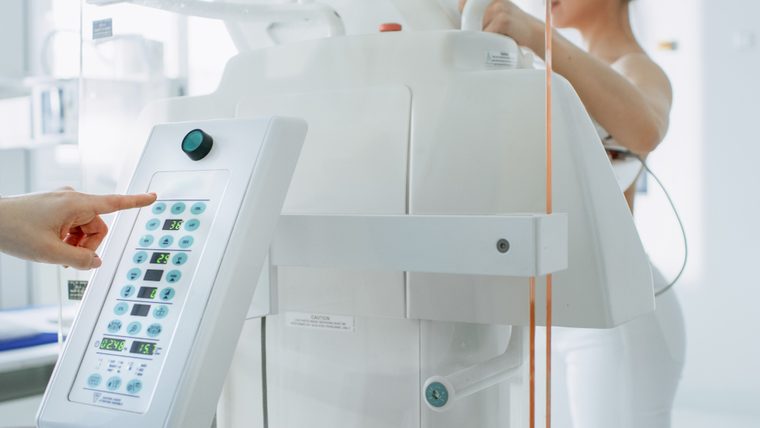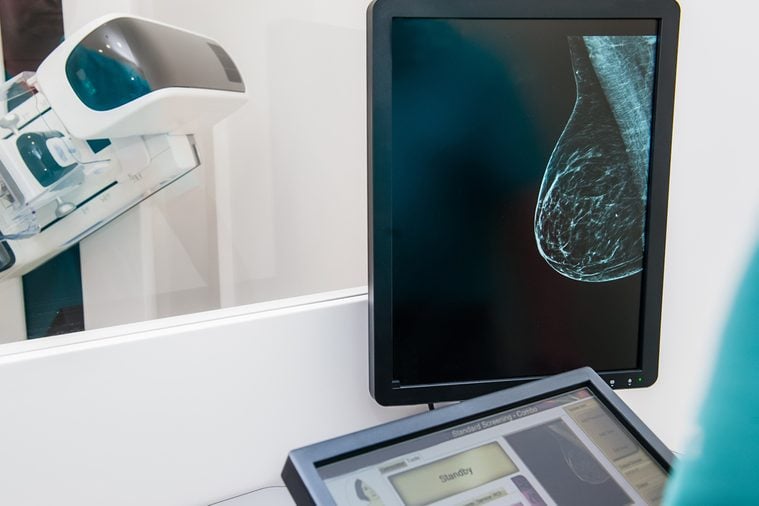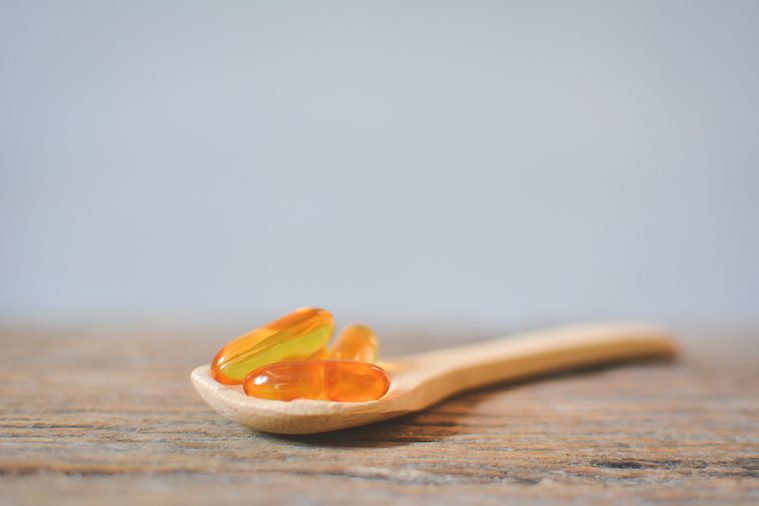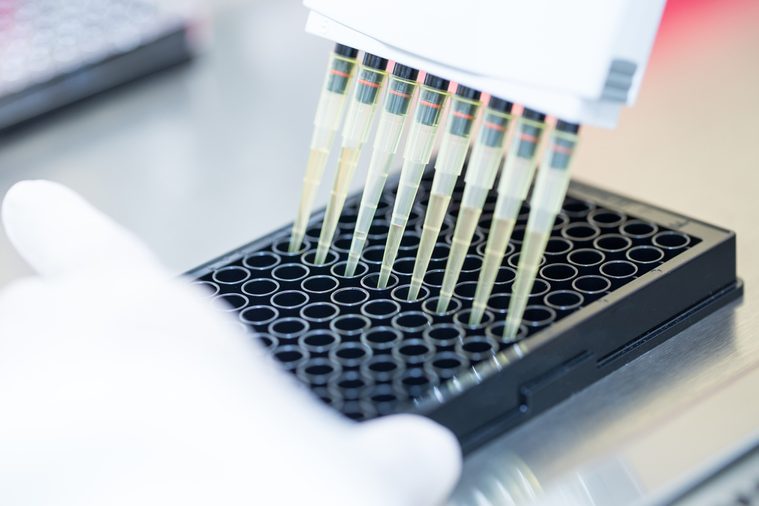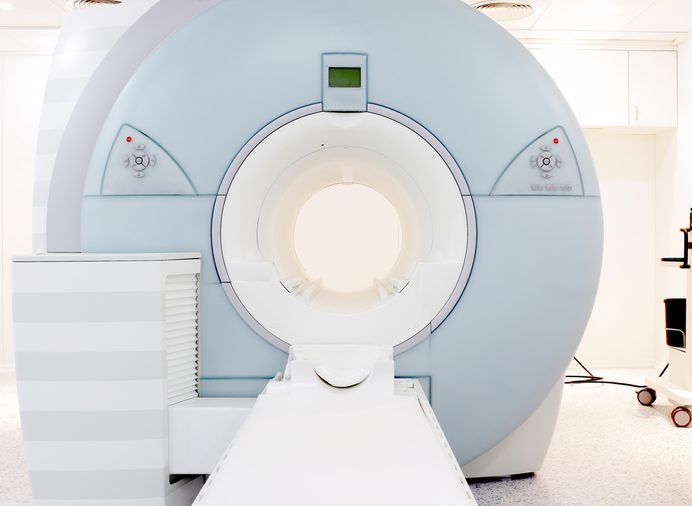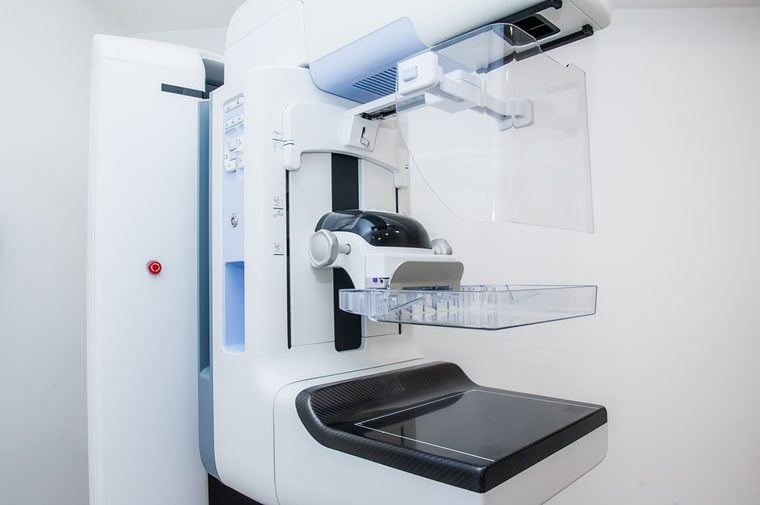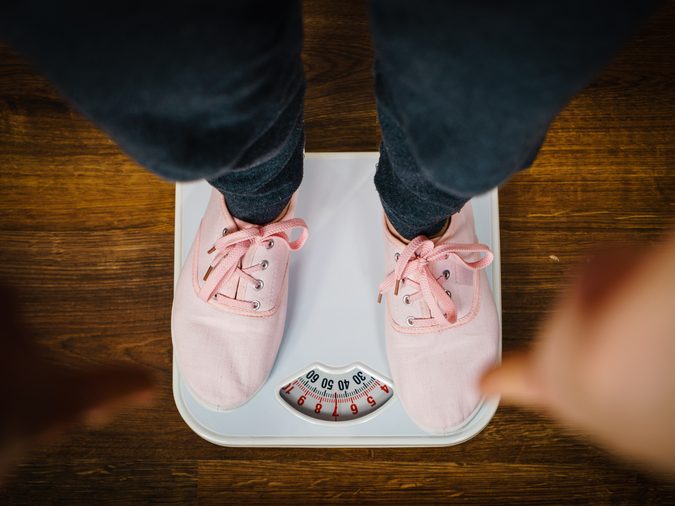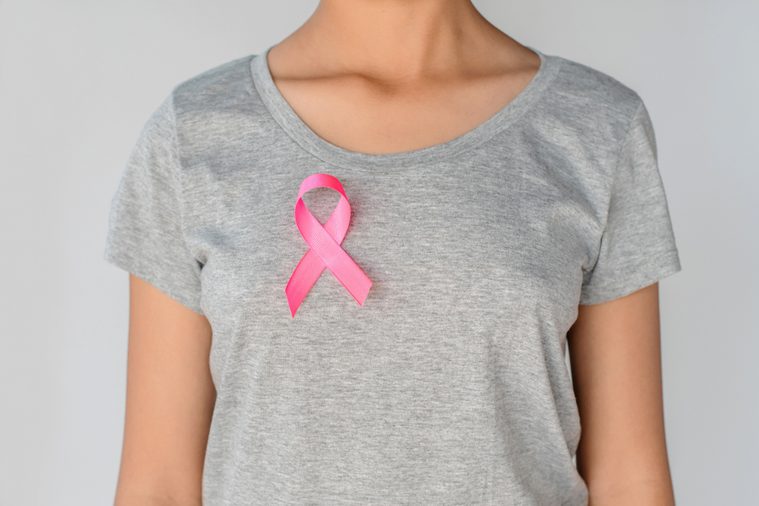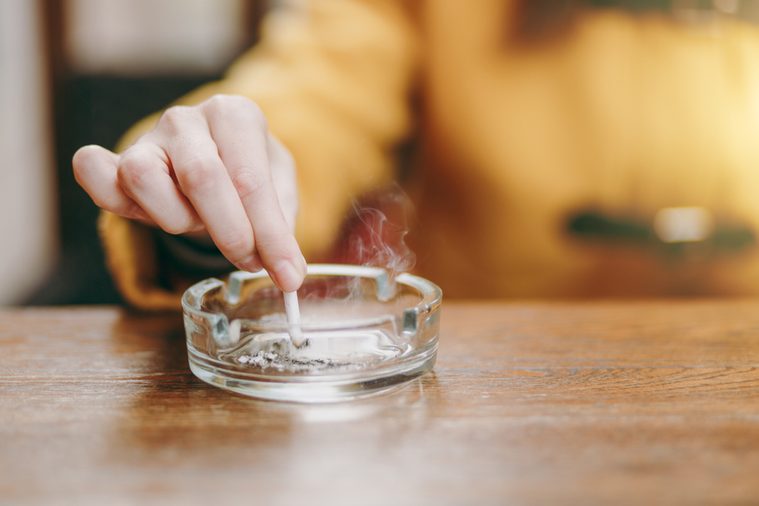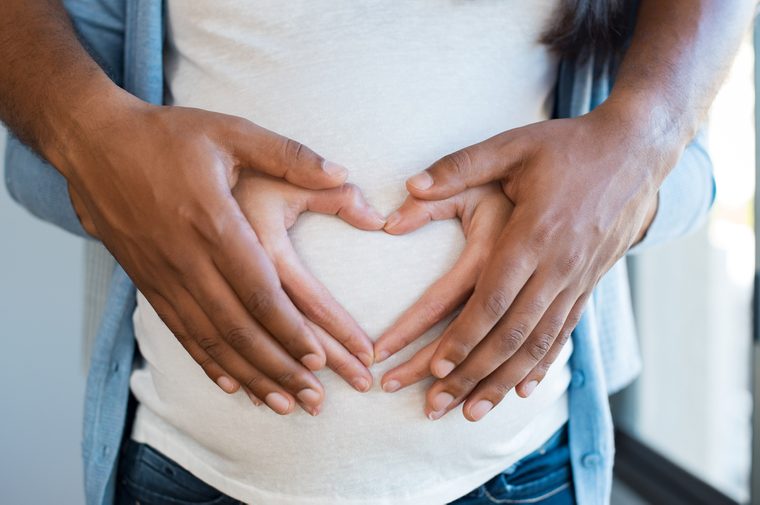Know your density
Knowing your breast density can give you a head start on breast cancer. In a study of more than 100,000 women and more than 300,000 screening exams, breast density was linked to greater risk for breast cancer, and women with dense breasts showed higher rates of additional rescreening and biopsies compared with women who had non-dense breasts.”Women who participate in mammography screening need to know if they have dense breast tissue and, if so, discuss with their healthcare providers screening beyond the mammogram,” says Nancy M Cappello, PhD, founder of Are You Dense, Inc. and Are You Dense Advocacy, Inc. “Women with dense breast tissue have a higher than average risk of getting breast cancer. Additionally, mammograms can mask cancer in dense breasts, making it challenging to detect cancer at its earliest stage.” Learn more about screening dense breasts at Are You Dense.
Alohaflaminggo/Shutterstock
Hop on the D Train
High blood levels of vitamin D may reduce breast cancer risk, a new study suggests. Women with higher vitamin D blood levels (60 ng/mL or more) had an 80 percent lower risk for breast cancer than those with the lowest levels (20 ng/mL or less). Among women with vitamin D blood levels between 20 and 60 ng/mL, the higher their level, the lower their risk of breast cancer. Researchers can’t say for sure that higher D levels will prevent breast cancer—only that there appears to be a link. Joan M. Lappe, PhD, Crises/Berne Professor of Nursing and investigator at the Osteoporosis Research Center at Creighton University in Omaha, Nebraska, was the principal investigator of the two NIH-funded trials conducted at Creighton University that were included in the PLOS study. “This study provides strong support that vitamin D plays an important role in breast cancer prevention,” says Lappe. “It also demonstrates that blood levels of vitamin D for breast cancer prevention need to be higher than currently recommended levels for bone health.” The National Academy of Sciences recommends that having vitamin D blood levels of 20 ng/ml or above is adequate for bone health.
RUBEN M RAMOS/Shutterstock
Reconsider your frequent flier miles
Flight attendants may face a greater-than-average risk for breast cancer, according to a study in Environmental Health. When compared with women in the general U.S. population, female flight attendants had a 51 percent higher rate of breast cancer. While experts are unsure why the risk jumps, some theorize that exposure to cosmic ionizing radiation from outer space may be the culprit. At flight altitudes, people are exposed to higher levels of it and aircrew have the highest average levels of all U.S. workers. The fact that flight crews have irregular sleep schedules may also play a role.


























